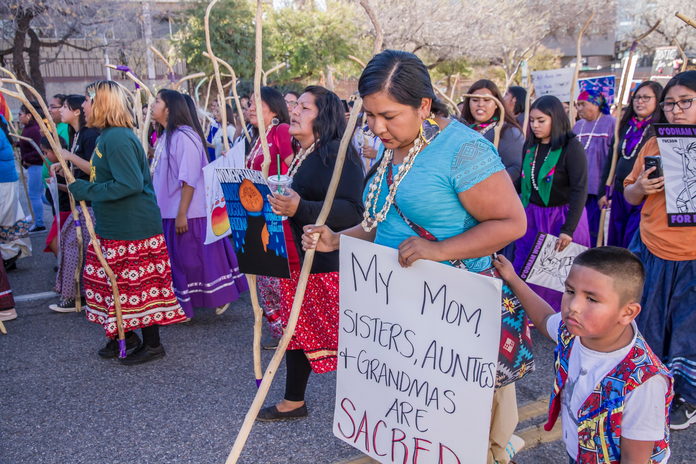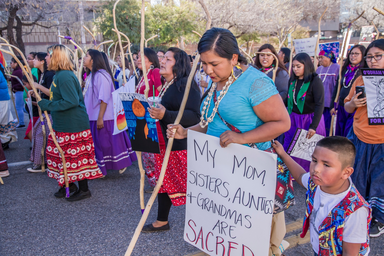TW: Sexual Harassment and Assualt, Violence against Women
This past Monday was International Women’s Day, and my social media feed was flooded with posts about incredible women. However, the celebrations of women and our achievements come at a dark time for women across the globe. This week has also shed even more light on sexual harassment and assault of modern women globally. Governor Andrew Cuomo (D-NY) is currently facing impeachment due to sexual misconduct allegations from former employees and aids. The UK has been consumed by the search of Sarah Everard, the young woman who disappeared walking home from a friend’s house. Sarah’s body was found on Friday after a week-long search. On Thursday, MP Jess Phillips read a list of the 110 UK women killed by men in the past year during a parliament session. Sarah Everard’s death has reignited a conversation about women’s safety. And like so many other women, I am angry.
As young women, certain routines become ingrained in us even at a young age. We’re told to always walk in groups, place our keys in between our fingers, if someone walks towards you then cross the street, let your family and friends know when you leave and when you get home, and if someone is to assault you, bite and scratch to get as much DNA as we can. We alter the clothes we wear and the routes we take to avoid harassment walking to work or class. I wear my hair in buns or tunk it into my jacket to avoid it being used to pull me aside by a possible assailant. There are so many more. The fact that this has been normalized in our society should make all of us incredibly uncomfortable. Moreover, why is it that I have to learn these routines in the first place? Shouldn’t we just be teaching men not to harass us?
When I was 17, I went to New York City for a summer program. I was so excited to be in a city and to be free. Most of the time, these learned routines kept me safe when I did venture off campus and into the city. One night, my academic group (about 20 of us in total) was walking back to our residence building after a river cruise. We were walking in a well-lit area and in a group. The group was primarily young women, with a few guys. A man began following us. He started to make lewd and explicit comments about my friends and myself, and at one point, even tried to make advances and grope many of us, despite our male peers trying to place themselves between him and us. We made it to a subway station, and the man jumped over the barrier to follow us. When we made it on the train, he followed us aboard. He sat at one end and continued to harass us until eventually getting off the train. Last year, I was walking home one warm afternoon from class in early September, wearing one of my favorite skirts. A man in his thirties was walking directly at me. Before I could pass, the man stopped right in front of me, with a smile, and said, “Nice skirt, beautiful. You know what would make it even better?” I didn’t wait around to find out, quickly maneuvering around him. To this day, I have not worn that skirt in public. These are only two of the occasions I have been sexually harassed. They are not isolated events, nor are they unique. Since Sarah’s disappearance, women have flooded social media with similar experiences. They’ve discussed being unable to run during certain times of the day due to fear, how they create escape plans from a possible assailant when walking home from dinner with friends, or how they bought their first keychain pepper spray upon heading to university. This is what women have come to expect in their day-to-day lives.
Sarah did everything right; she called her partner and told him that she was on her way home, she walked in a well-lit area with lots of CCTV cameras, she wore brightly colored clothes and shoes that were sensible if she needed to run. Yet, her family and an entire nation are mourning her death. Every woman has a right to feel and be safe. According to new data from the UN Women UK, 97% of women between the ages of 18-24 have been sexually harassed in public places, and 70% of women of all ages experienced sexual harassment in public. 1 in 5 women are sexually assaulted in their lifetime. Sexual harassment and assault should never have to be a fact of life. Women should not have to fear for their safety every time they step outside of their homes. This applies to the workplace as well. In the US, the top headline this past week has been the investigation of Governor Cuomo following sexual misconduct allegations over the past week. Cuomo is one of many powerful men accused of such in the past few years following the #MeToo Movement in 2016. Again, we must ask ourselves how this culture of harassment of women has become commonplace. More importantly, how might we reclaim public spaces and workplaces going forward. To quote former minister Maria Miller, who addressed the UK Parliament in the wake of Sarah’s death, “Sarah did everything to avoid danger and, let’s be very clear, women are not the problem here.” Mrs. Miller is right; women are not the problem. There needs to change. This starts with men.
If you’re a guy, you might be asking yourself, “What can I do?”. The answer is you can do a lot. Be an active bystander. Don’t catcall and stick up for those being catcalled. When your friends make sexist or misogynistic jokes or comments when women aren’t around, call them out. Offer to walk your female friends home. Advocate for the women in your workplace or campus when you see oppression and harassment. Understand that we are scared. When women tell their stories, believe them. On Friday, as women were coming forward and sharing their experiences, “Not All Men” started trending on Twitter. This mindset is part of the problem. We are not accusing you; we are simply asking to be heard. “Not All Men” invalidates the experiences of the women coming forward. In other words, we’re not asking for your commentary. Women are coming forward with their stories to educate and garner support from our counterparts. In order to change the culture, we have to have these discussions. Even at young ages, we have to educate boys and girls about harassment. “He’s only teasing/hurting you because he likes you” on school playgrounds cannot be tolerated as it justifies gender violence. The sooner and earlier this discussion becomes commonplace, the better. Ending gender-based violence and harassment is going to have to be a collaboration between men and women.
While we actively change the culture, women must go about their lives and remain safe. Until we see a world where there is no gender-based violence, below are recommendations for personal safety:
-
Download the One Scream App, which detects your scream and sends for help, and alerts your emergency contacts in case of an assault or an attack.
-
Set up the Emergency SOS feature on your iPhone in the settings feature.
-
Share location with family or friends when walking or running via apps like Life360, FindmyFriends, or WhatsApp.
-
Download the app Parachute, which allows you to simply tap to activate, and it will send live video and audio to your emergency contacts and saves the data to the cloud in case the phone is damaged or stolen.
National Sexual Assault Hotline 800-656-(4673) Boston Area Rape Crisis Center (BARCC) 1-800-841-8371



